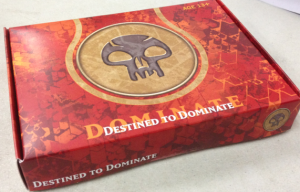What does going to a big, nerdy card-game tournament have to do with churchy language? In my mind at least, quite a bit!

I’ve always been interested in words and language. I’ve written about it on here a couple of times, but I was struck on Saturday by the immense power of language to make people feel deeply included, or utterly excluded.
Inclusive language
On Saturday I embraced the nerd in me and indulged a hobby (a card game called Magic: The Gathering) by going to a big prerelease event for a new block of cards that’s being released. It was a fantastic day in a room with over 100 other people, all with the same interest, all getting new cards and playing with them. Awesome!
I only knew one person there, but I spoke with lots of people. We all shared the same language. We all knew the words and what they meant. This was one exchange with a guy I met called Andy:
Andy: “What format do you normally play?”
Me: “Mostly just casual Modern games with my mate. Occasionally a bit of Commander, I want to get into that a bit more. We don’t invest enough money for Standard or competitive Modern. You?”
Andy: “There’s a group of us that Draft quite often. That’s my favourite. Theros has been great for drafting.”
Me: “Cool!”
Immediately, I felt at home, included, as though we had a bond. Because we could both not only use language with which we are so familiar, but be understood as we do so. It put us at ease. It was only later that we got to know a bit more about each other. But the bond was already established.
The danger of inclusion
So shared vocabulary can be a powerful force for inclusion and unity. It’s like being somewhere that speaks a language you don’t speak and you bump into someone who speaks your tongue – glorious!

My event pack. I didn’t dominate much, though.
There is a big danger here, though. The flip side of making people feel included is that others feel utterly excluded.
If a non-MtG player had walked into that room, they’d have been lost. There was no attempt made to explain all the words and terms, no introductory tutorials in how to play. Nothing. That’s perfectly fair, since it is not an intro event. It is aimed at people who already play.
It was a deeply inclusive event for those already sold on it, but not a welcoming event for people who aren’t.
As much as I like Magic: the Gathering (and I really do!), I know there’s more to life. This post isn’t really about that. It has triggered my thinking about Christians and churchy language. We have plenty of vocabulary and jargon that we use without even realising it. Are we always aware what effects this has?
Churchy language: inclusive and welcoming?
Just like at my event on Saturday, I’m sure churchy language it has two effects:
- Creating a bond between those who are already ‘insiders’ and know the language
- Alienating those who are ‘outsiders’, don’t know the language but are interested
(I don’t normally use that language of ‘insider’/’outsider’ as it’s a horrible dichotomy, and am using it only to describe people’s relationship with the churchy language.)
This leave me with a quandary. To be sensitive to the ‘outsider’, perhaps we should stop using churchy language and never use any words that aren’t just part of the rest of the world’s dictionary. But then we miss out on the opportunity for a greater depth of unity among believers (and, as I’ve suggested elsewhere, a stunting of our own discipleship). It’s also hard to engage with the Bible if we throw out all Christian ‘jargon’ because a lot of it comes from the Bible!
But the opposite – “Church isn’t for ‘them’, it’s for us, and if ‘they’ want to join in it must be on our terms” – doesn’t seem to ring true with the radical inclusiveness of Jesus.
I end, then, not with a conclusion, but a question, because I want to hold onto both – depth of inclusion AND welcome to others.
My question about churchy language: does anyone have a way forward? Any thoughts, drop a comment below.
-
Will Trevitt
-
Graham Criddle
-
Gavin Crowley
-
http://limpingintotruth.blogspot.co.uk/ Dave Criddle
-
Gavin Crowley
-
Gavin Crowley
-
-
-
